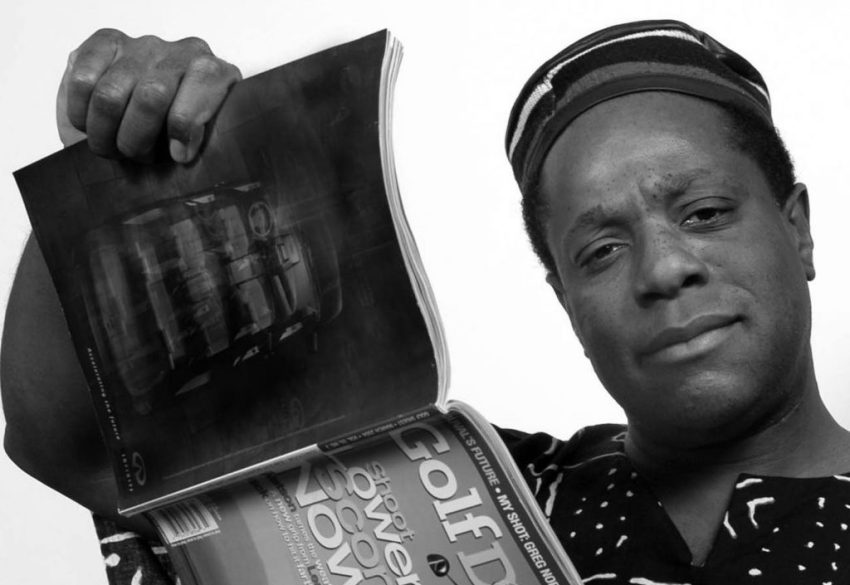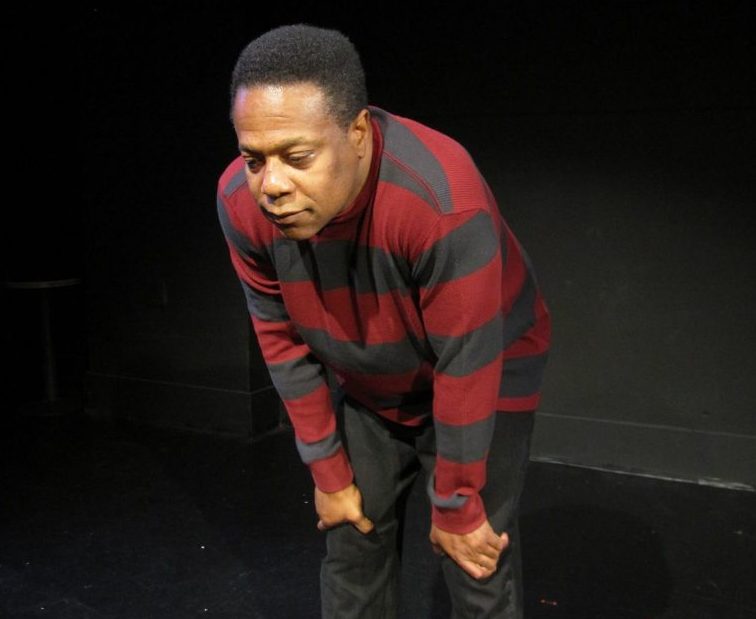
“Not A Genuine Black Man”: Rich in Wit & Warmth—at The Marsh, S.F.
Brian Copeland Returns in 20th Anniversary Triumph!
by Barry David Horwitz
Brian Copeland’s “Not A Genuine Black Man” reminds us of our nation’s history through his own personal history of racial rejection in San Leandro. His solo show is returning for its 1,000th performance & its 20th anniversary!
Copeland weaves anecdotes about growing up in 70s San Leandro, then a 99% white East Bay suburb. For decades, home builders, bankers, and realtors red-lined San Leandro into a white bastion, using white supremacist tactics.
On his first day in San Leandro as a boy, Copeland describes leaving his mom’s apartment in search of a grassy green park. There he encounters a group of white boys. His hopes of friendship are abruptly dashed when the boys shout racial slurs and threaten to beat him up.
He darts away down the street, crossing paths with someone who should be his protector—a San Leandro police officer. Copeland adeptly switches between his voice as a child and the officer’s voice.
The officer asks Copeland why he’s running in this “quiet” neighborhood, to which little Brian explains his terrifying encounter with the boys. Skeptical and accusatory, the cop pats down the eight-year-old for weapons! Copeland calls it a rite of passage for all black youngsters.

Copeland mingles nostalgia with striking liveliness, radiating warm familiarity. But that warmth masks deeper truths about being Black in America.
When Copeland’s mother, a delicate soul, moved to San Leandro, they suffer racism, harassment, and the inevitable eviction notice. They are persecuted by the manager, the landlord, and the police. Fair Housing laws are routinely violated. A police officer waits to stop Black drivers at the city entrance.
The tenderness and intimacy of Copeland’s storytelling gives way to a rigorous examination of the complexities of Black identity and masculinity.
Copeland tells stories like a master. He weaves us in and out of his elegant mom’s subtle reaction to daily insults. When he imitates his mother, his hand delicately raised to his mouth, we feel the child’s love for his besieged, resilient mom.
He jokes about having no interest in athletics. Copeland laughs, “That’s not very Black, is it?” His anecdotes embody a forceful critique of Black stereotypes.
Copeland tells stories with charming humor and uses endearing encounters with family and friends in his narrative. He depicts his beloved grandmother’s assertive lingo.
He reenacts his family wearing their Sunday best for brunch at IHOP. Behind his nostalgia lies a powerful hopefulness. He sees San Leandro and the entire country with an understated optimism.
Today, San Leandro has made remarkable progress towards diversity and inclusion. In 2013, one study called San Leandro the fifth most diverse city in America, with tens of thousands of Black, Latinx, Asian-American, and others. Copeland still lives in San Leandro with his wife and kids.
What a treat to meet his elegant mom, his outspoken grandma, and his little sister. Like no one else, Brian Copeland conveys the pain, isolation, and rejection that he experienced as a Black child. Spending quality time with Brian Copeland feels like a warm and witty family reunion.
“Not A Genuine Black Man” –written & performed by Brian Copeland, directed by David Ford, at The Marsh, San Francisco. Info: themarsh.org – to June 22, 2024 – Saturdays @3 pm.
Cast: Brian Copeland (playing many roles)